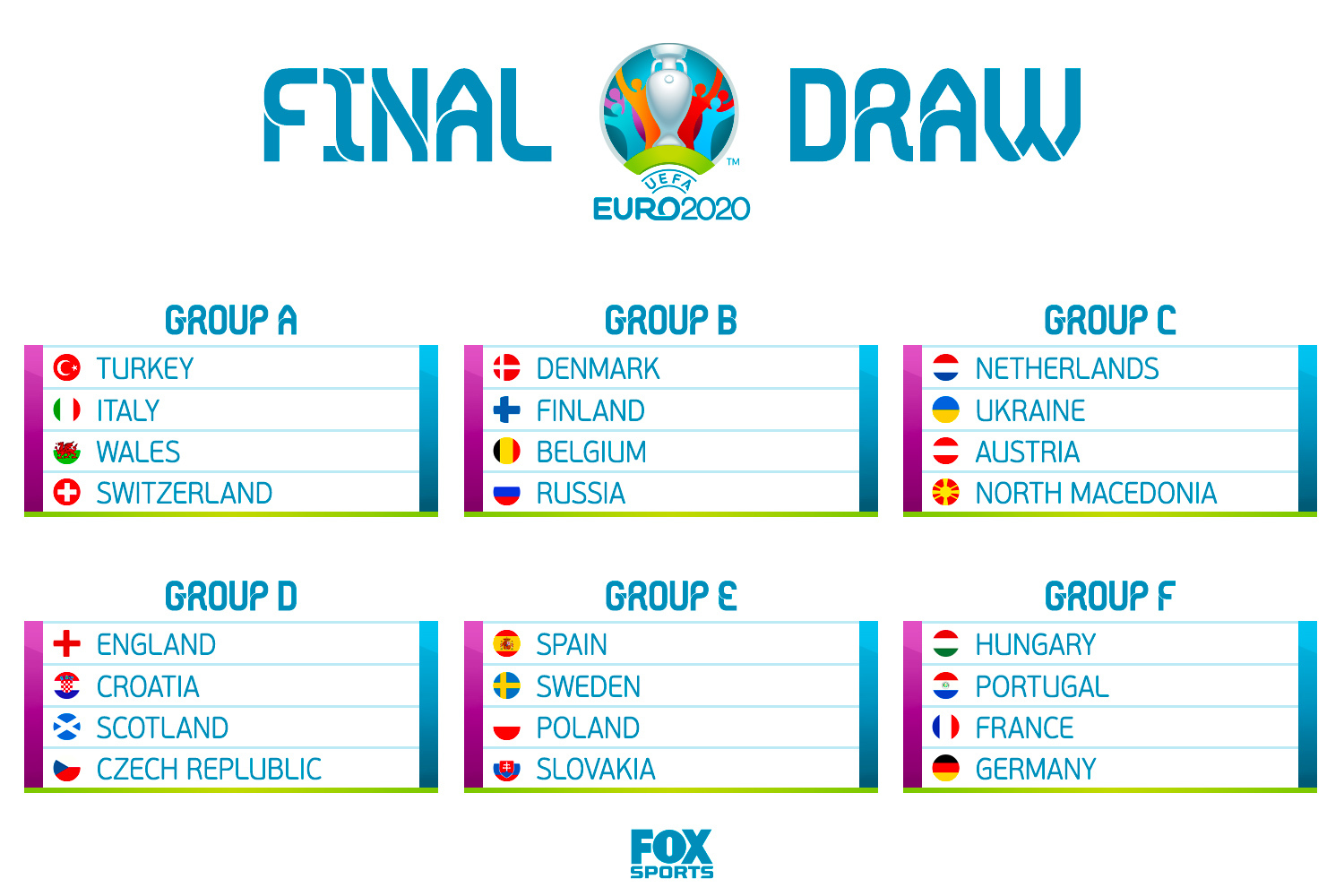After a year-long delay due to the COVID-19 pandemic, on June 11, the Union of European Football Associations (UEFA) kicked off the highly anticipated tournament of the summer — the Euro 2020. Traditionally, the Euros have been hosted by one or two countries, but for the first time in the competition’s history, it is being held across the entire continent. This decision was made in commemoration of the Euro’s 60th anniversary. The eleven host cities are: Amsterdam, Baku, Bucharest, Budapest, Copenhagen, Glasgow, London, Munich, Rome, Seville, and St. Petersburg.
Last November, the 24 qualified national soccer teams were split into six groups of four, named Group A all the way to Group F. Of those 24 teams, 16 will move on to the knockout stage. The top two of each group and the four third-place teams that finish the group stage with the best records will advance to compete for the title.
In Group A, we had Turkey, Italy, Wales, and Switzerland. In the opening match between Turkey and Italy, the latter comfortably dominated the game winning 3-0. Italy continued to not concede goals by scoring an additional three against Switzerland and kept its clean sheet record with its final match with Wales. The same cannot be said about Turkey, who were dealt a final blow from Switzerland by 3-1 on Jun. 20th.
In Group B, there was Denmark, Finland, Belgium, and Russia. At its opening match, Finland beat Denmark with a score of 1-0 after, unfortunately, Denmark’s midfielder Christian Eriksen needed urgent medical attention after collapsing on the field in the 43rd minute. Denmark would prevail though, as they defeated Russia 4-1 which was good enough to advance due to scoring the second most goals (five) in the group. No team besides Belgium won more than a single game, whilst Belgium won all three, scoring seven goals whilst letting up only one.
In Group C, the Netherlands, Ukraine, Austria, and North Macedonia competed against each other. Austria’s 3-1 victory against North Macedonia in its opening match was the team’s first ever victory in a major tournament in the last 31 years. They placed second in the group with a 2-0-1 record. The Netherlands dominated, going undefeated while scoring eight goals; double what Austria put on the board.
Group D was filled by England, Croatia, Scotland, and Czech Republic. The latter’s forward, Patrik Schick, stunned Scotland in its first game by scoring two goals. The second one was shot at the 52nd minute and approximately 50 yards away from the goal, which is almost halfway across the entire field; impressive to say the least. This was in vain though, as England and Croatia placed first and second in the group respectively.
In Group E, Spain, Sweden, Poland, and Slovakia went toe-to-toe. In their first game, Poland’s goalkeeper Wojciech Szczęsny scored on his own goal at the 18th minute, putting Slovakia up 1-0. This proved to be a major mistake, as Poland lost 2-1. Spain, one of the most reputable teams in Europe, struggled to beat Poland as Bayern Munich’s top striker Robert Lewandowski secured a goal against the big guys with a header to bring them to a draw. This draw ended up costing Spain the tiebreaker with Sweden for first place as both teams would’ve had two wins to one draw.
Group F, known as the “Group of Death,” consisted of France, Germany, Portugal, and Hungary. In the opening game for the group, it wasn’t until the last six minutes of the game where Hungary conceded against Portugal, as Cristiano Ronaldo scored two goals. France won their only game against 2014 World Cup Champions, Germany, due to an unfortunate goal directed to the wrong net by German defender, Mats Hummels. This single win was enough to put France in first place after drawing their first two matches. The only other win to occur in this whole group was Germany defeating Portugal 4-2. It’s safe to say Group F was one of the most competitive of the six.
The group stage ended on June 23rd, with Wales, Denmark, Italy, Austria, Netherlands, Czech Republic, Belgium, Portugal, Croatia, Spain, France, Switzerland, England, Germany, Sweden, and Ukraine advancing to the next stage.











